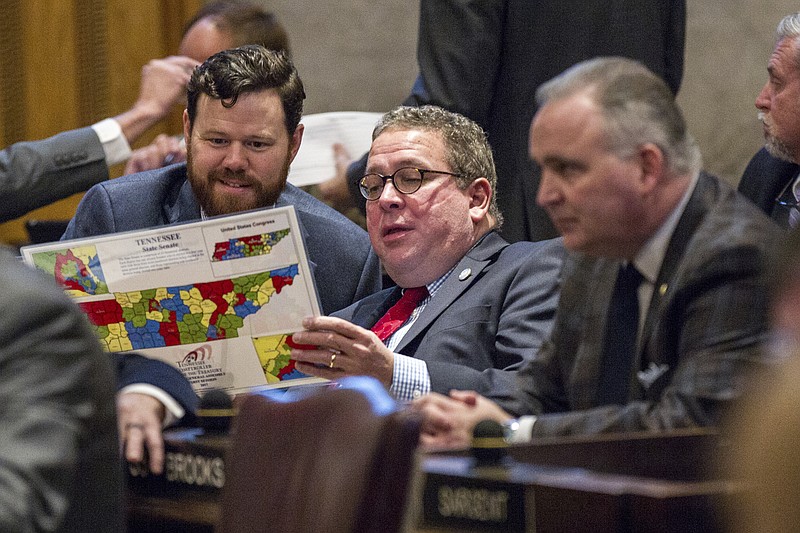NASHVILLE, Tenn. (AP) - A former Reagan administration economist's steak-and-caviar argument against cutting Tennessee's sales tax on groceries appeared to generate little appetite at the state Capitol on Thursday.
Arthur Laffer told a House committee earlier in the week that the state should pursue greater reductions in business taxes instead of cutting any of the tax on food as part of an effort to balance out a proposed hike in the tax on gas and diesel.
Cutting the sales tax on groceries amounts to "silly pandering" and cutting corporate taxes does more to spur the economy, Laffer said.
Democratic Rep. John Mark Windle of Livingston challenged Laffer about whether families wouldn't benefit from paying less on essential food items like baby formula.
Laffer responded that such a move would also "cut the tax on my buying a steak or caviar," and argued that lawmakers should focus on having the greatest economic impact.
"I vehemently disagree with him that cutting taxes on baby formula, milk and eggs and bread for working families is a bad idea or it doesn't help the economy," Windle said.
"I'm not really concerned about their steak and caviar," he said. "I'm worried about working families making ends meet."
Republican Gov. Bill Haslam wants to boost transportation funding by about $280 million annually, largely through a 7-cents-per-gallon gasoline tax increase, and a 12-cent hike in the diesel tax. The governor proposes balancing those increases with commensurate cuts in the grocery sales tax, the tax on income from stocks and bonds, and corporate taxes for manufacturers.
Haslam said he is trying to be both strategic and equitable in his approach to the tax cuts.
"If we are going to have a tax cut, I'd like some of that to go to the one tax that everybody pays, and that's the grocery tax," Haslam said. "Will that bring more business to Tennessee? No. But it is it fair? Yeah, I think it is fair."
Republican Rep. Gerald McCormick of Chattanooga, the chairman of the powerful House budget subcommittee, said he supports a substantial reduction in the sales tax on groceries.
"They deserve a tax cut if they're going to get hit with a tax increase," McCormick said. "I am opposed to just giving a tax cut to rich people and increasing taxes on poor people to pay for it."
Senate Majority Leader Mark Norris said lawmakers are hoping to strike the right balance.
"Finding ways, short of writing rebate checks, to return the taxpayers' dollars is a real challenge," said Norris, R-Collierville. "So reducing the sales tax on food ... is something that has to be considered."
House Minority Leader Craig Fitzhugh, D-Ripley, said the tax on food hits the broadest section of Tennesseans.
"Everybody buys milk, but not everyone buys caviar," he said.
